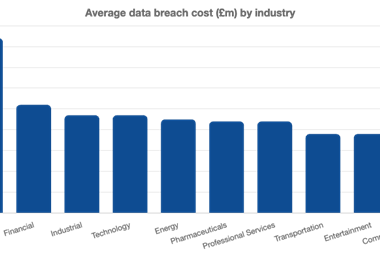Under-resourced tax departments are causing significant risks for global organisations, however, automation and technology may hold the answers
Corporate tax and global trade departments say they are under-resourced for technology and talent, leading to increased business risk.
For trade professionals, feeling understaffed is an acute challenge, while strained tax departments are more likely to face audits and penalties, the new report from Thomson Reuters has found.

Companies are also grappling with the data-intensive demands of today’s import and export trading environment – including new requirements to collect ESG data to comply with local laws – adding complexity, and reputational risk.
Ray Grove, head of product, transactional compliance at Thomson Reuters said: “Tax teams are under-resourced and the need for internal efficiency is their top priority.”
Tech and talent resourcing strains are increasing business risk
Half of corporate tax departments (47%) admit they are under-resourced for technology, resources and hiring, particularly in firms with revenue of $50 million to $6 billion.
Almost three-quarters (72%) of businesses with under-resourced tax departments incurred a tax audit in the previous year, compared to 61% of overall tax departments.
Half (47%) also incurred tax penalties, with an average value of $40,000 – double the median penalty of $20,000 incurred by all tax departments.
Similarly, one-third (33%) of global trade professionals feel that their departments are feeling the pinch from understaffing and lack of budget.
In addition to lack of resources, they identify one of their biggest challenges as increased disruption, notably from inflation, supply chain, international conflicts, and regulatory changes.
How to manage the threats
Technology is ranked as the most effective way to reduce risk (17%), ahead of improved quality control and hiring more headcount.
”There’s significant optimism about the potential of automation and generative AI to boost efficiency and support future growth,” says Grove, “but tax and trade professionals are facing barriers to unlocking this potential.
“Specifically, they’re feeling under-resourced in terms of technology budget for their departments, as well as headcount to be able to achieve their goals.
”This is not only tempering the success they can have – it’s also bringing risk and increasing the likelihood, and cost, of penalties that they’re facing.”
Improving efficiency is therefore top of the list of priorities for tax departments (32%), followed by acquiring additional software (14%) and automation of processes (12%).
Short-term resourcing priorities for the next one to two years see introducing automation favoured as the highest priority for tax departments, with 51% ranking this ahead of increasing efficiency (46%) and growing headcount (34%).
In global trade, there is a heightened focus on investment in cloud-based technology to help gain control over every aspect of the supply chain for businesses.
Two-thirds (65%) of companies with $100 million-plus revenue are implementing technology upgrades with top priorities focused on:
- Supply chain security and data protection (62%, up from 54% in 2022)
- Ensuring compliance for transactions (55%)
- Improving information sharing, both within and across departments (51%)
- Change is a constant for businesses
- More than two-thirds (69%) of corporate tax professionals said they expect their companies to undergo significant change within the next two years, with change anticipated around:
- Shifting product and service offerings
- Restructuring or merger
- New jurisdictions, particularly in the services and the technology, media and telecoms industries
What’s next?
For global trade, the months ahead are set to bring greater need for compliance, with shifting and new regulations coming in across the world.
Alongside challenges brought by inflation and supply chain shortages and disruption, half (46%) of trade professionals see retaliatory tariffs being the area most likely to impact trade.
The UK’s new Custom Declarations Service (43%) and China’s Export Control Law (36%) are the other key factors that professionals feel may impact trade operations for corporate businesses.




















No comments yet